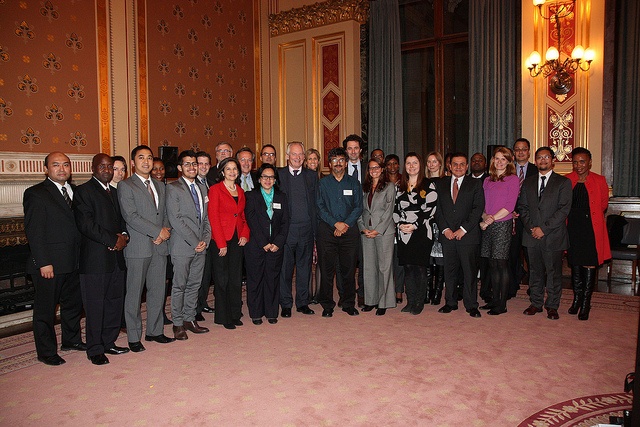Government and civil society joint working on the UK Action Plan: definitely worth it!
I have been involved in the OGP since its early beginnings and it has been a real privilege to witness the growth of a movement so exciting and ambitious. The idea of making governments more open and transparent, because this benefits not just the citizens, but the government itself, is far more revolutionary than it may sound and it takes time and effort to let it sink in and make it happen.
The UK started this journey from a fairly advanced position. TransparencyAccording to OGP’s Articles of Governance, transparency occurs when “government-held information (including on activities and decisions) is open, comprehensive, timely, freely available to the pub... More is one of this government’s key priorities. In the Cabinet Office, the Transparency Team was already working to develop a strategy with open dataBy opening up data and making it sharable and reusable, governments can enable informed debate, better decision making, and the development of innovative new services. Technical specifications: Polici... at its heart. But the essence of the OGP is that to achieve “Open Government”, governments cannot work on their own and there is another voice entitled to speak out loudly: civil society. This is why the OGP is different and this is where the real challenge lies. And even when you think you’ve got it – understand what it means – you may find that it’s not quite like what you thought.
The UK government woke up to the extent of this challenge when a coalition of civil society organisations wrote a letter to ask for more effective engagement. We asked civil society to sit down with us and work together to help us make a difference. We didn’t open the dialogue because we had to or to pretend inclusiveness, we did it because we knew how much added value policies have when they are developed through exchange of diverse ideas, contributions from experts and those who work on the ground.
But it’s not easy. It takes time. And it’s about setting expectations.
Governments need to become more ambitious and commitments should go above and beyond policies already in place. However civil society also needs to understand that OGP is not about simply presenting a list of demands and expecting governments to meet them all at once. It is about genuine engagement and responding to opportunities; which policies need priority action and which ones could wait; pick the right battles worth fighting.
Governments and civil society need to come to terms with their different ways of working and establish an honest approach.
Trust is key; pace needs balancing; government needs time to properly consider wider implications while civil society seeks immediate action. And sometimes both sides are so focused on their specific issues that they forget the wider perspective. What are we ultimately trying to achieve? Is it just about national action plans?
The UK has hosted three days of OGP events in London last week. On the last evening I was enjoying the reception in the beautiful setting of Lancaster House, chatting and mingling and the answer was there: a room full of people from different countries and backgrounds, civil society and government officials, ministers and open data “geeks”. We were all there because we all have one thing in common: we believe in “open government” and in the positive results it can bring. This is extraordinary and it is the big change that drives all the other single achievements.
So yes, the UK Government has not yet been able to publish its draft plan as quickly as we hoped and yes, we have not met all civil society demands. Some we will meet, some we don’t know yet, others we probably never will. But if somebody asked me whether this process was worth it, I say “yes, it’s been great”. Some people think we haven’t gone far enough, but: “how far is far enough?”. This is a journey and I am very proud of how far we have come. We couldn’t have done it without our civil society partners and we will need them even more going forward.
So I say:
“think big, give time, acknowledge all achievements, don’t lose the trust and more results will come”.

